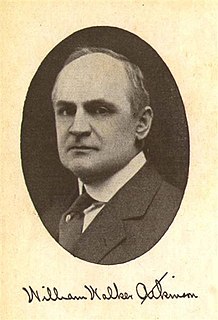A Quote by Jean Rostand
It may offend us to hear our own thoughts expressed by others: we are not sure enough of their souls.
Related Quotes
Nothing can tell us so much about the general lawlessness of humanity as a perfect acquaintance with our own immoderate behavior. If we would think over our own impulses, we would recognize in our own souls the guiding principle of all vices which we reproach in other people; and if it is not in our very actions, it will be present at least in our impulses. There is no malice that self-love will not offer to our spirits so that we may exploit any occasion, and there are few people virtuous enough not to be tempted.
...we sacrifice other species to our own not because our own has any objective metaphysical privilege over others, but simply because it is ours. It may be very natural to have this loyalty to our own species, but let us hear no more from the naturalists about the "sentimentality" of anti-vivisectionists. If loyalty to our own species - preference for man simply because we are men - is not sentiment, then what is?
Your children are not your children. They are the sons and daughters of Life's longing for itself. They come through you but not from you, and though they are with you, yet they belong not to you. You may give them your love, but not your thoughts. For they have their own thoughts. You may house their bodies but not their souls, for their souls dwell in the house of tomorrow, which you cannot visit, not even in your dreams. You may strive to be like them, but seek not to make them like you. For life goes not backward, nor tarries with yesterday.
Compassion allows us to use our own pain and the pain of others as a vehicle for connection. This is a delicate and profound path. We may be adverse to seeing our own suffering because it tends to ignite a blaze of self-blame and regret. And we may be adverse to seeing suffering in others because we find it unbearable or distasteful, or we find it threatening to our own happiness. All of these possible reactions to the suffering in the word make us want to turn away from life.
We are sending out thoughts of greater or less intensity all the time, and we are reaping the results of such thoughts. Not only do our thought-waves influence ourselves and others, but they have a drawing power - they attract to us the thoughts of others, things, circumstances, people, 'luck', in accord with the character of the thought uppermost in our minds.
Let us open wide the windows of our hearts, that each family member may feel welcome and 'at home.' Let us open also the doors of our very souls, that the dear ________ may enter. Remember His promise: 'Behold, I stand at the door, and knock: if any man hear my voice, and open the door, I will come in to him' (Revelation 3:20).
Glad and merry and sweet is the blessed and lovely demeanour of our Lord towards our souls, for he saw us always living in love-longing, and he wants our souls to be gladly disposed toward him . . . by his grace he lifts up and will draw our outer disposition to our inward, and will make us all at unity with him, and each of us with others in the true, lasting joy which is Jesus.
To conclude this discussion, assessment of justice demands engagement with the 'eyes of mankind',first, because we may variously identify with the others elsewhere and not just with our local community;second, because our choices and actions may affect the lives of others far as well as near;and third,because what they see from their respective perspective of history and geography may help us to overcome our own parochialism.




































